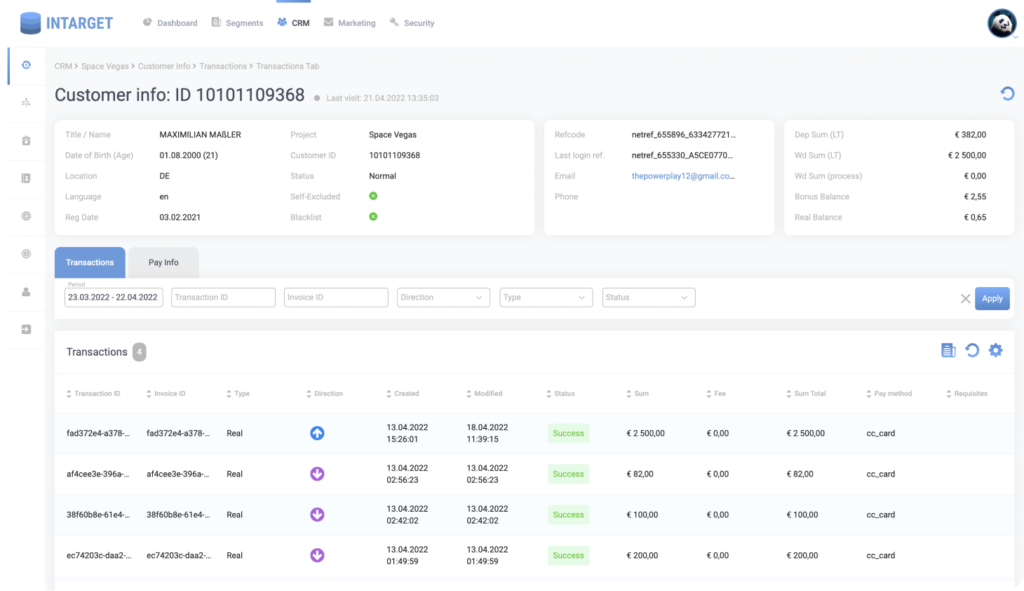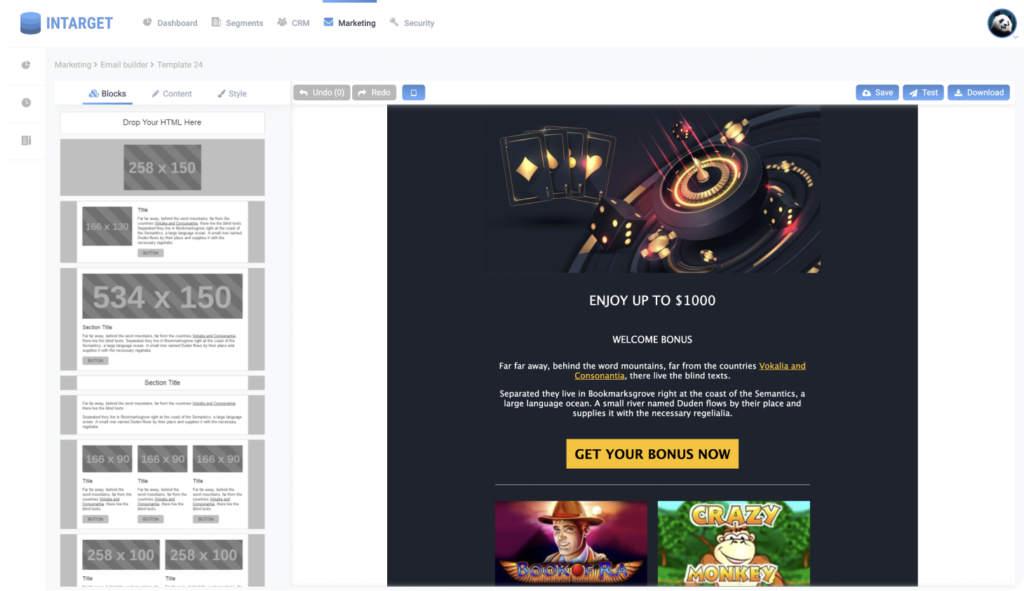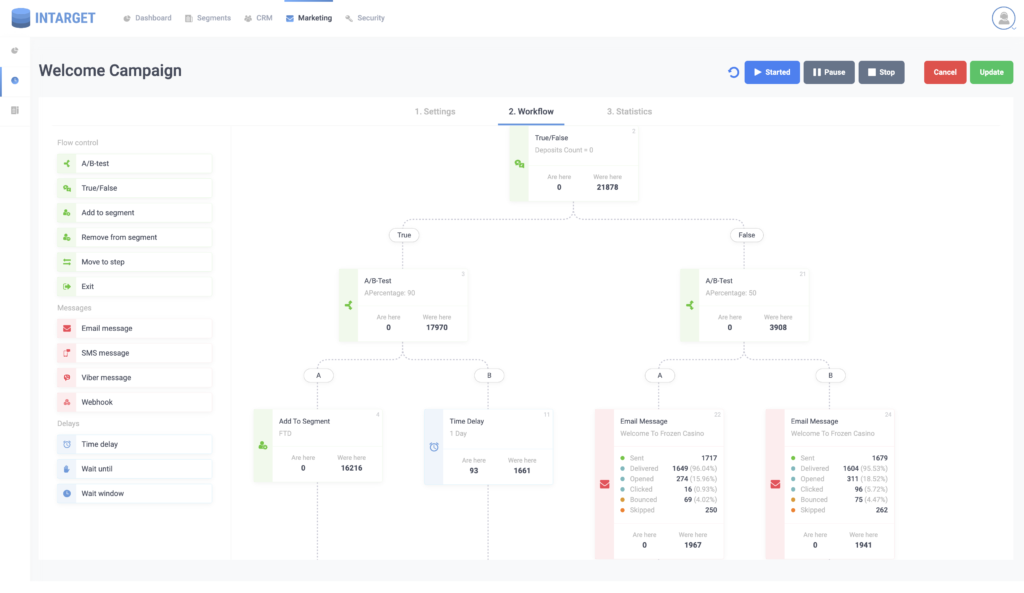Churn, the rate at which players cease engaging with an online casino or sports betting platform, is a critical concern for operators in the digital gambling industry. Understanding the reasons behind churn allows businesses to take necessary steps to improve player retention and ultimately, increase revenue.
In this article, we will explore the top factors that contribute to churn among online casino and sports betting players, and highlight the significance of Customer Relationship Management (CRM) and marketing automation in addressing these challenges.
Unsatisfactory User Experience
One of the primary reasons behind player churn is a poor user experience. This can range from a complicated user interface to slow loading times or difficulties navigating the site. An unsatisfactory user experience can frustrate players and deter them from using a platform, causing them to seek more user-friendly alternatives.
Limited Game Selection
A limited selection of games and betting options can contribute to churn in online casinos and sportsbooks. Players are always looking for variety and excitement, so a platform with a limited offering may struggle to retain users eager to explore new games or betting markets.
Inadequate Customer Support
If a player experiences an issue, prompt and effective customer support is essential to resolving the situation and maintaining player satisfaction. Poor customer service, including slow response times, unhelpful agents, or lack of support channels, can lead to frustration and may cause players to abandon a platform.
Uncompetitive Promotions and Bonuses
Promotions and bonuses are common tools online casinos and sportsbooks use to attract and retain players. Players may be more inclined to switch to a different site offering more attractive incentives if a platform’s promotional offers are uncompetitive compared to its rivals.
Trust and Security Concerns
In an industry where financial transactions and sensitive data are constantly exchanged, trust and security are paramount. Platforms with a history of security breaches, delayed payouts, or ambiguous terms and conditions may struggle to retain players who prioritize their personal information and funds.
Payment Method Restrictions
A limited selection of payment methods can deter players from using a platform, mainly if their preferred method is not supported. In addition, slow processing times for deposits and withdrawals can contribute to player frustration and ultimately lead to churn.
Social Influence and Negative Reviews
Word-of-mouth plays a significant role in the online gambling industry. If a platform receives a high volume of negative reviews or is perceived poorly within online communities, players may be deterred from signing up or continuing to use the service.
The Role of CRM and Marketing Automation in Reducing Churn
To address the challenges associated with churn, online gambling operators can leverage CRM and marketing automation tools to improve player retention. CRM systems enable businesses to manage interactions with current and potential customers effectively while marketing automation streamlines marketing processes and campaigns.
Personalization and Segmentation
CRM systems can help operators segment their player base based on factors such as demographics, preferences, and behaviors. This segmentation allows for the creation of personalized marketing campaigns that target specific player needs, leading to increased engagement and reduced churn.
Customer Lifecycle Management
Marketing automation tools can help businesses manage the entire customer lifecycle, from acquisition to retention. By automating communication and engagement efforts, operators can nurture relationships with players at various stages of their lifecycle, ensuring they remain satisfied and loyal to the platform.
Data-Driven Decision Making
Both CRM and marketing automation systems provide valuable data insights that enable operators to make informed decisions about their marketing and retention strategies. By analyzing player data, businesses can identify trends, patterns, and potential issues, allowing them to implement proactive measures to reduce churn.
Efficient Communication
Automated marketing and CRM tools allow operators to communicate with players effectively and efficiently. Timely, relevant, and personalized messages can be sent through various channels, such as email, SMS, or in-app notifications, ensuring players stay informed and engaged with the platform.
Reactivation Campaigns
CRM and marketing automation systems can help identify inactive or at-risk players, enabling operators to create targeted reactivation campaigns. These campaigns may offer special promotions, bonuses, or personalized incentives to encourage players to return to the platform and reduce the churn risk.
A/B Testing and Optimization
Marketing automation tools allow operators to conduct A/B testing of various marketing strategies, helping them identify the most effective approaches to engage and retain players. By continuously optimizing marketing campaigns based on data-driven insights, operators can minimize churn and maximize player lifetime value.
Conclusion
Churn in online casino and sports betting players can be attributed to a variety of factors, including poor user experience, limited game selection, inadequate customer support, uncompetitive promotions and bonuses, trust and security concerns, payment method restrictions, and negative social influence. By addressing these issues and implementing strategies to improve player satisfaction, online gambling operators can work towards reducing churn rates and maximizing player retention.
Moreover, the use of CRM and marketing automation tools can significantly contribute to minimizing churn in the online gambling industry. Through personalization and segmentation, customer lifecycle management, data-driven decision-making, efficient communication, reactivation campaigns, and continuous optimization, operators can enhance their relationships with players and provide a superior experience that encourages loyalty and long-term engagement.



